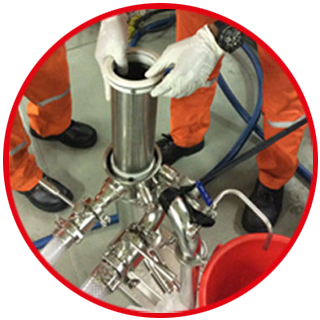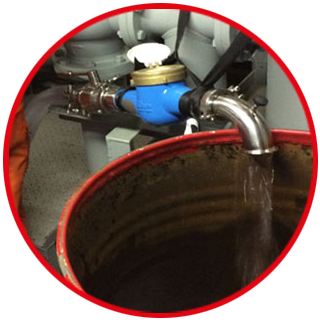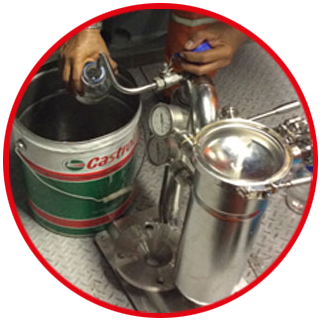Singapore is cognisant of the risks posed by marine bio invasive species being transported from ballast water. Unlike other forms of marine pollution, such as oil spills, where ameliorative action can be taken and from which the environment will eventually recover, the impacts of invasive marine species are most often irreversible.
The International Maritime Organization (IMO) advocates its Member States to ratify the International Convention for the Control and Management of Ships’ Ballast Water and Sediments (the Ballast Water Management Convention, 2004). As a responsible port and flag state, the MPA supports and upholds this Convention designed to regulate the proper control and management of ships’ ballast water. However, there are several challenges with the Convention in its current form which needs to be addressed first for smooth and effective implementation. This would include the efficacy of type-approved treatment systems installed onboard ships as well as the need to harmonize the sampling and analysis protocol. Administrations as well as the industry will continue to grapple with issues such as the type approval process, the efficacy of type approved systems installed on board ships in complying with the D-2 standards consistently, and harmonising the sampling and analysis protocol.
Effective implementation of conventions is critical to Singapore and we are interested in working with like-minded countries and all stakeholders in addressing these challenges as soon as possible before the Convention comes into force.
In this regard, MPA has conducted a study to sample and analyse ballast water treated by the IMO type approved Ballast Water Treatment Plant to verify compliance with D2 standards. All sampling and analysis were carried out in accordance with the available IMO guidelines. We have shared the results and experience on this sampling and analysis process at the recently concluded 67th session of the IMO’s Marine Environment Protection Committee (MEPC). The presentation and information shared by Singapore on sampling and analysis played an important role in the discussions and decisions made by the ballast water working group. The committee also took pragmatic decisions towards agreeing solutions on the issues that were hindering the pragmatic implementation of the Convention. Below are some images taken during one of the samplings which had been conducted.

Filter: ≥50µ filter

Ballast water from Sampler outlet

Samples being collected
Finally, we would like to thank the owners/managers who have assisted us with our study for the benefit of the environment and the industry.The present status of the BWMC is 43 contracting states with the total tonnage of 32.54%, a shortfall of 2.46% to meet the entry into force criteria.
The MLC – One Year On
The maritime sector is a global and competitive industry. Shipowners have always had to keep abreast of the latest technological developments, and at the same time, deal with the regulatory changes that come in their wake. Even so, the Maritime Labour Convention (MLC) was groundbreaking, introducing a comprehensive framework of requirements for the working and living conditions of seafarers.
Welcoming the challenge, Singapore stepped up to be one of the early adopters, and was the first in Asia to ratify the MLC. This was part of our commitment to the welfare of seafarers, who are the backbone of the maritime industry, and the MPA had worked extensively with our tripartite partners to prepare for the entry into force on 20 Aug 2013.
During the implementation period, Singapore shipowners had to quickly familiarise themselves with new requirements. Looking back at the past one year since entry into force, the Singapore fleet has coped admirably - despite some initial hiccups, obtaining the necessary certifications such as the Declaration of Maritime Labour Compliance (DMLC) and the Maritime Labour Certificate in time. Credit has to be given to the tripartite partners within our shipping community for the intense preparations, allowing for a smooth first year.
One year after entry into force, the grace period for MLC certification put in place by the International Labour Organization has ended, and we can also expect port States to carry out more detailed inspections on the MLC requirements. MPA would like to remind the shipping community about the importance of putting in place effective measures and processes to ensure compliance with the MLC. Coordination between shore offices and the onboard personnel is especially important when it comes to crewing and manning issues, and will help to address any unhappiness in the early stages.
Beyond mere compliance, the MPA firmly believes that ensuring proper protection for seafarers and their employment rights also reaps benefits for employers, who can look forward to higher morale and retention of good people, which will result in well-managed ships and efficient operations. We encourage shipowners to embrace the spirit of the MLC and pro-actively improve conditions for their seafarers, making the Singapore fleet an attractive workplace.
The first year of the MLC has been an exciting journey for all, and we look forward to working together with the shipping community for future changes to the MLC.
